Unit1 SectionB 2a-2e第五课时课件—2025年新目标九年级Unit 1 How can we become good learners?
文档属性
| 名称 | Unit1 SectionB 2a-2e第五课时课件—2025年新目标九年级Unit 1 How can we become good learners? | 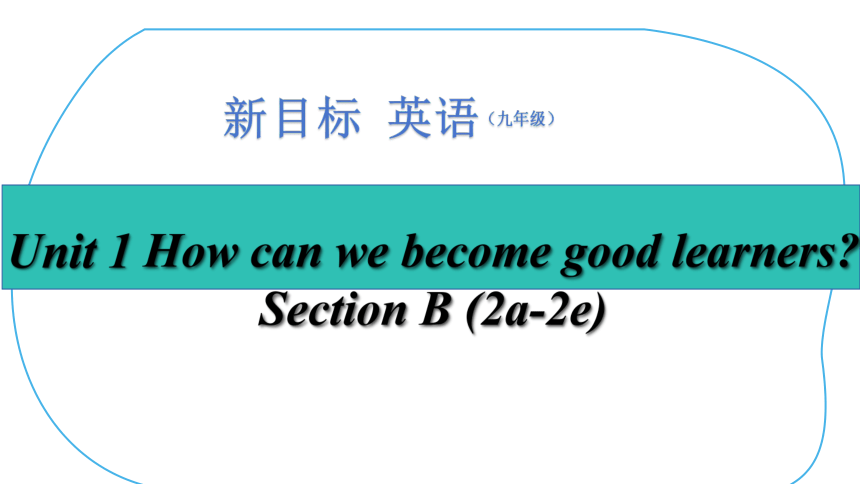 | |
| 格式 | pptx | ||
| 文件大小 | 15.8MB | ||
| 资源类型 | 试卷 | ||
| 版本资源 | 人教新目标(Go for it)版 | ||
| 科目 | 英语 | ||
| 更新时间 | 2025-08-07 18:53:32 | ||
图片预览

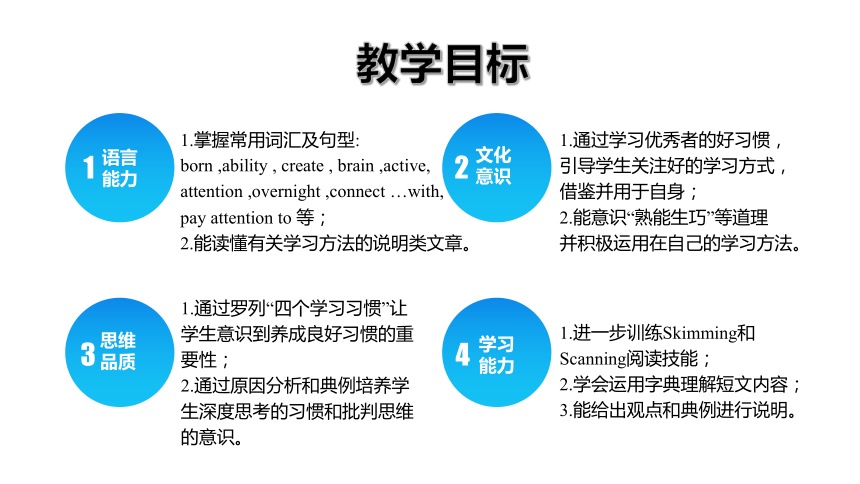
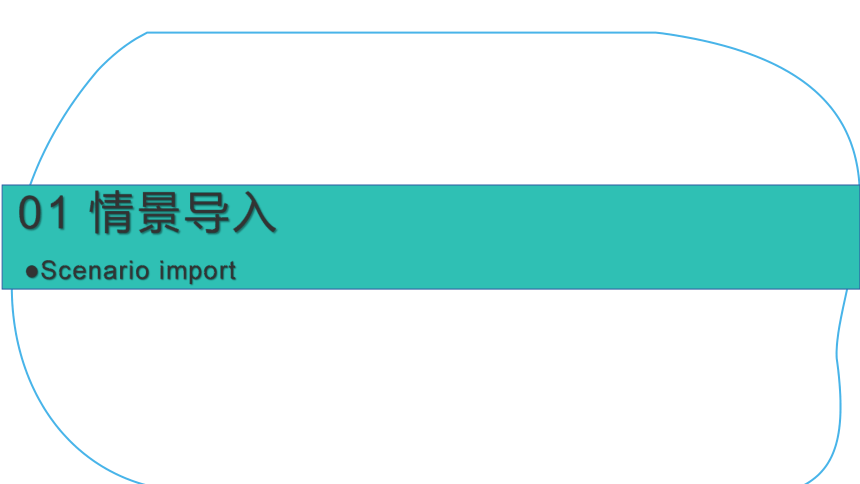
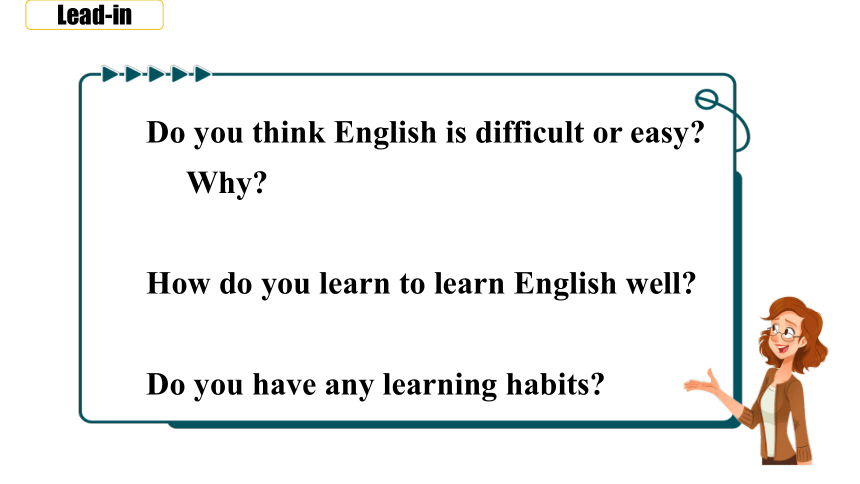
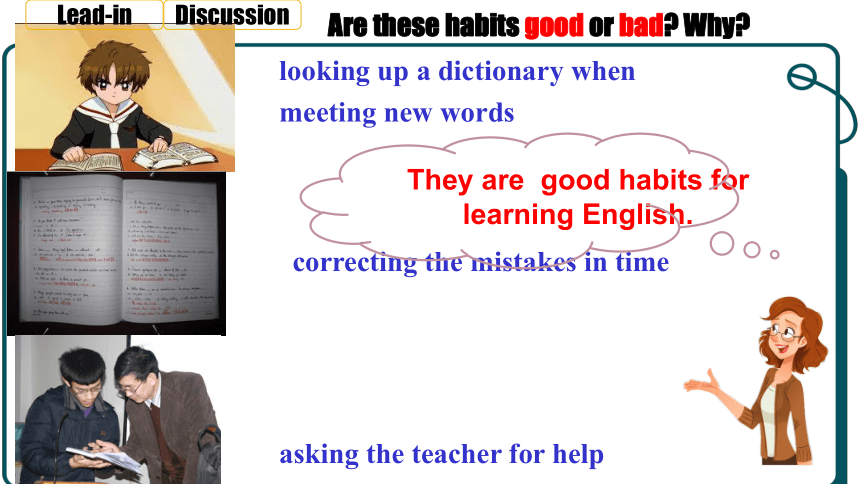
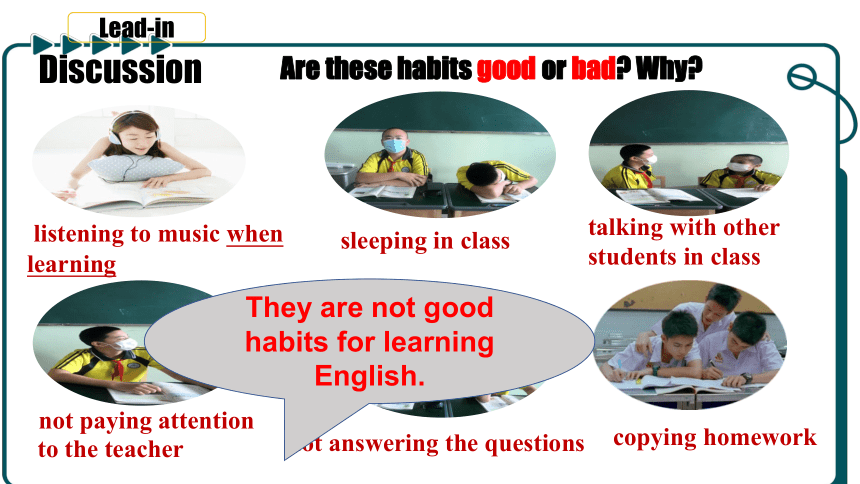
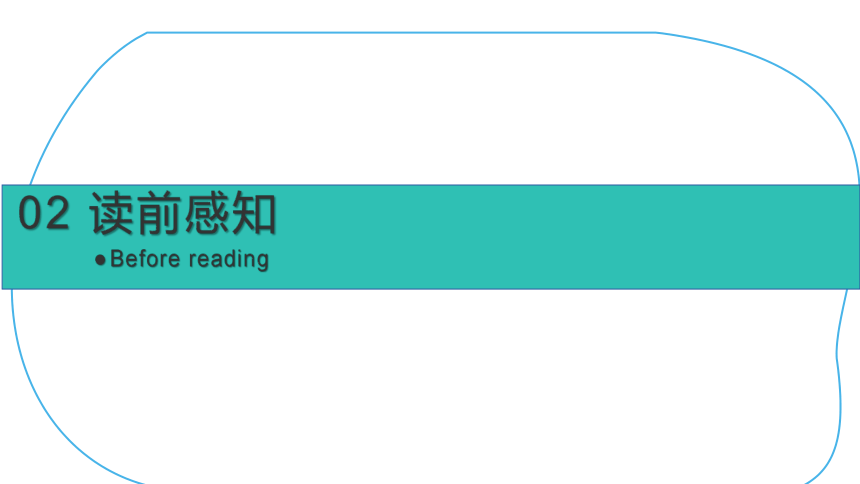
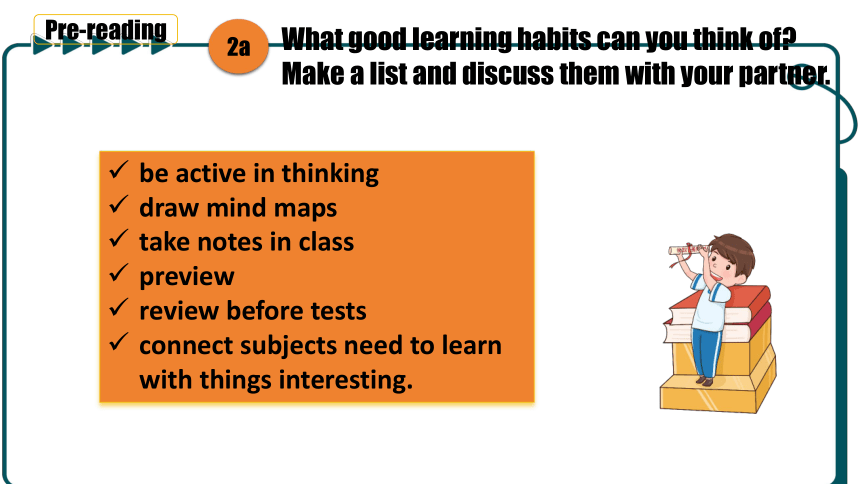
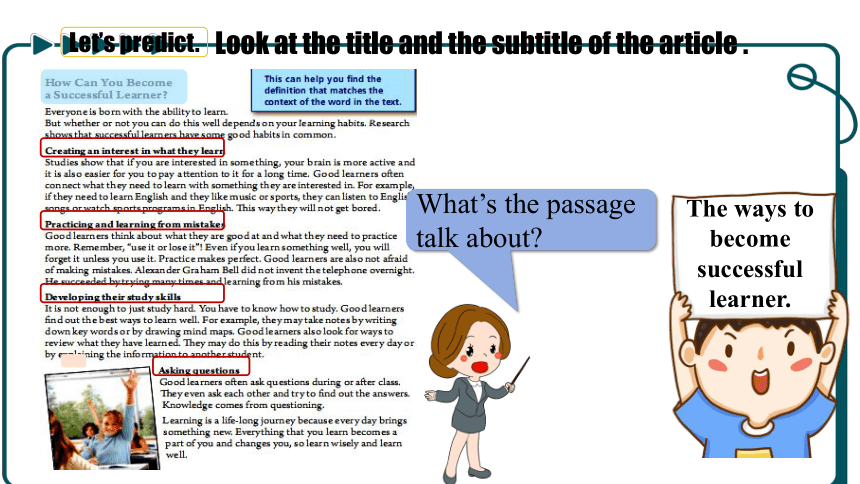
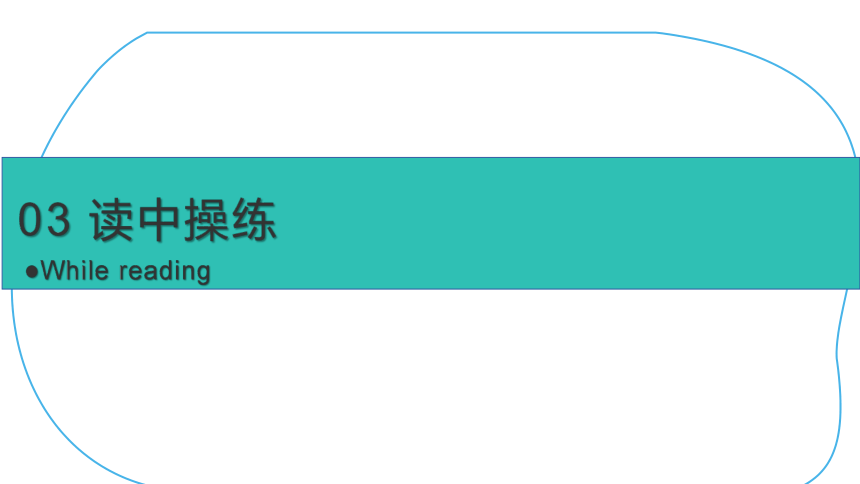
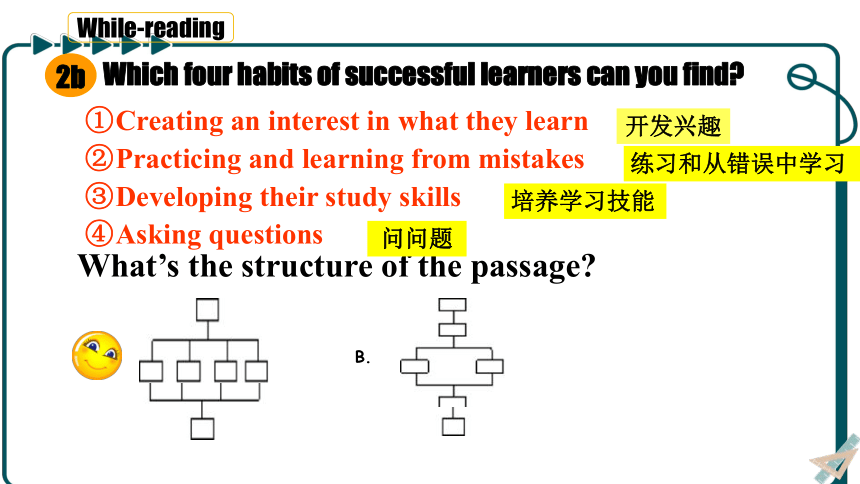
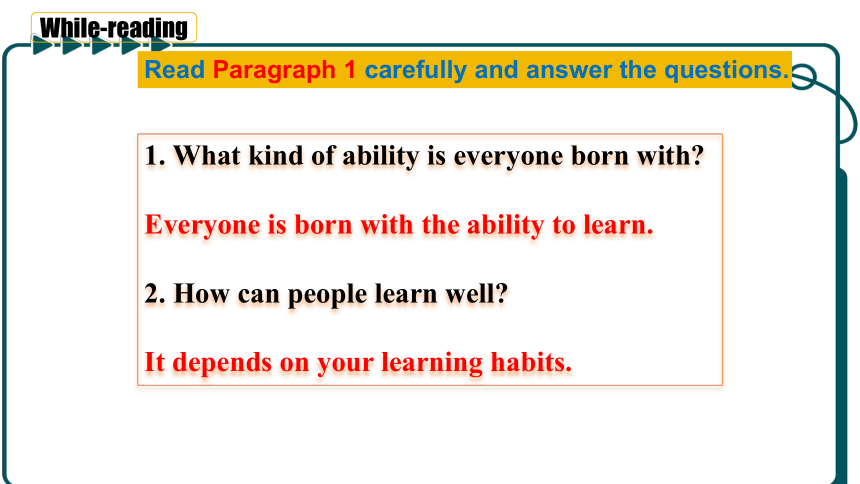
文档简介
(共37张PPT)
2. Whose birthday is it
Unit 1 How can we become good learners
Section B (2a-2e)
新目标 英语(九年级)
教学目标
语言
能力
学习
能力
思维
品质
文化
意识
1.通过学习优秀者的好习惯,
引导学生关注好的学习方式,借鉴并用于自身;
2.能意识“熟能生巧”等道理
并积极运用在自己的学习方法。
1.掌握常用词汇及句型:
born ,ability , create , brain ,active,
attention ,overnight ,connect …with,
pay attention to 等;
2.能读懂有关学习方法的说明类文章。
1.通过罗列“四个学习习惯”让学生意识到养成良好习惯的重要性;
2.通过原因分析和典例培养学生深度思考的习惯和批判思维的意识。
1.进一步训练Skimming和Scanning阅读技能;
2.学会运用字典理解短文内容;
3.能给出观点和典例进行说明。
1
2
3
4
2. Whose birthday is it
01 情景导入
Scenario import
Do you think English is difficult or easy
Why
How do you learn to learn English well
Do you have any learning habits
Lead-in
looking up a dictionary when meeting new words
asking the teacher for help
correcting the mistakes in time
Discussion
Lead-in
Are these habits good or bad Why
They are good habits for learning English.
Discussion
Are these habits good or bad Why
listening to music when learning
sleeping in class
talking with other
students in class
not paying attention
to the teacher
not answering the questions
copying homework
They are not good habits for learning English.
Lead-in
2. Whose birthday is it
02 读前感知
Before reading
be active in thinking
draw mind maps
take notes in class
preview
review before tests
connect subjects need to learn with things interesting.
Pre-reading
What good learning habits can you think of
Make a list and discuss them with your partner.
2a
Let’s predict.
What’s the passage
talk about
Look at the title and the subtitle of the article .
The ways to become successful learner.
2. Whose birthday is it
03 读中操练
While reading
What’s the structure of the passage
开发兴趣
练习和从错误中学习
培养学习技能
问问题
2b
Which four habits of successful learners can you find
Creating an interest in what they learn
Practicing and learning from mistakes
Developing their study skills
Asking questions
While-reading
A.
B.
Read Paragraph 1 carefully and answer the questions.
While-reading
1. What kind of ability is everyone born with
Everyone is born with the ability to learn.
2. How can people learn well
It depends on your learning habits.
Read Paragraph 2 carefully and fill in the chart.
Creating an interest in what they learn
Why
How
Example
The______ is________
It’s easier to______________it for
a long time.
_________ what they need to learn_____
something interesting.
They can _________________ or ______
___________in English___they need to
learn English and they like music and
sports. They will not______________.
brain
more active
pay attention to
Connecting
with
listen to English songs
watch
sports programs
if
get bored
Why
How
Example
While-reading
Read Paragraph 3 and tell whether the sentences are true or false.
1.If you are good at something, you don’t need to practice more.
2.Good learners are not afraid of making mistakes, they always keep practicing.
3.Alexander Graham Bell invented the telephone overnight.
need
Use it or lose it
Practice makes perfect
proverbs
[ pr v bz]
谚语
用进废退
熟能生巧
F
T
F
didn't invent
[ v na t] adv.一夜之间
While-reading
How to develop their study skills
They can _____________
_
They _______ ways to ______ what they have learned.
__________
__________
__________
Read Paragraph 4 carefully and complete the mind map.
__________
___________
take notes
by writing down key words
by drawing mind maps
look for
review
by reading their notes
by explaning the infomation to another student
①
②
Good learners know the best way they can study.
While-reading
While-reading
Read Para.5 and finish the mind map.
Para.5
Reasons
Habits
Asking questions
Knowledge comes from questioning.
The process of asking questions is the process of learning.
Do you think it’s important to ask questions?
While-reading
Read Para.6 and answer the questions.
Yes,I do.
Never too old to learn(活到老,学到老).
We should learn wisely and learn well.
1.Do you agree that learning is a lifelong journey
2.What should we do
Read the passage again and answer the questions.
1. Does the writer think that everyone is born with the ability to learn well Do you agree Why or why not
2. Why is it a good idea to connect something you need to learn with something you are interested in
3. What do the sayings “use it or lose it” and “practice makes perfect” mean Do you agree with them
No, he doesn’t.
Yes, I do.
Because whether or not you can do this well depends on your learning habits.
Because if you are interested in something, your brain is more active and it is also easier for you to pay attention to it for a long time.
1.Even if you learn something well, you will forget it unless you use it.
2.We should keep practicing what we have learned so that we can be good at it.
3.Yes, I do.
2c
4. Do good learners learn from mistakes or are they afraid of making mistakes
5. What study skills does the writer talk about Do you have those
study skills
6. Do you agree that learning is a life-long journey Why or why not
学习技能
They learn from mistakes.
Taking notes by writing down key words or by drawing mind maps, looking for ways to review what they have learned, and doing this by reading their notes every day or by explaining the information to another student.
Yes. Because every day brings something new.
2. Whose birthday is it
04 读后拓展
After reading
Retell the passage.
Post-reading
Everyone has the __________to learn. Here are some good ways to learn. Firstly, __________an interest in something, because if we are interested in it, our__________will be more active and it’s easier for us to pay attention to it for a long time. Secondly, practice more. We can’t learn anything well __________. Practice makes perfect. Thirdly, don’t be afraid of_____________
mistakes. Instead we should learn from our mistakes. Fourthly, __________study skills. It is not enough to just study hard. We must know the best way to study. We may____________what we have learned by reading notes every day after class or explaining the information to others.
Finally, ask questions during or after class.
overnight
create
brain
ability
making
develop
review
Find the following words from the passage in the dictionary. Then write a sentence using each word in the context(上下文) of the reading.
brain n.【考研;CET6;CET4;TOEFL】 connect v.【考研;CET6;CET4;TOEFL;IELTS】 overnight adv.【考研;CET6;CET4;】 attention n. 【考研;CET6;CET4;TOEFL】 review v. 【考研;CET6;CET4;TOEFL】 knowledge n. 【考研;CET6;CET4;TOEFL】
ability n. 【考研;CET6;CET4;TOEFL】 active adj.【考研;CET6;CET4;TOEFL】
wisely adv.【考研;CET6;CET4;TOEFL】
e.g. brain: A good way to train the brain is to do some math exercises every day.
训练大脑
2d
Are you a good learner
Would you like to share your good learning habits with us
Discussion
Learning habits
In Class
After class
...
Before class
“You are never too old to learn”
Hope you can enjoy your learning and enjoy your life.
2e
2. Whose birthday is it
05 回顾总结
Summary
Make a mind map according to 2b.
Post-reading
Part 1
Part 2
Part 3
opinion
conclusion
Para. 1
Para. 2~5
Para. 6
Arguments
提出观点
列举方法
得出结论
successful learners have some good habits in common.
Learning is a life-long journey; learn wisely and learn well.
creating an interest
practicing and learning from mistakes
developing study skills
asking questions
How to write an exposition(说明文)
Let’s talk
Opinion
Arguments
Conclusion
by offering examples as evidence
举例证明
by giving reasons 说明理由
Introduction
Conclusing
2. Whose birthday is it
06 考点大全
Language points
Everyone is born with the ability to learn. But whether or not you can do this well depends on your learning habits. Research shows that successful learners have some good habits in common.
是否
依赖;依靠;取决于
born v.出生 adj.天生的
be born with 天生具有
have...in common
有...共同点
the ability to do sth 做某事的能力
How can you become a successful learner
Creating an interest in what they learn
Studies show that if you are interested in something, your brain is more active and it is also easier for you to pay attention to it for a long time. Good learners often connect what they need to learn with something interesting. For example, if they need to learn English and they like music or sports, they can listen to English songs or watch sports programs in English. This way they will not get bored.
感到厌烦
激发他们对所学内容的兴趣
create 创造
study 研究
be interested in sth/doing sth
更活跃
it is+adj+(for sb) +to do sth
pay attention to sth/doing sth
把...和...联系起来
举例(举一例)
观看体育节目
Practicing and learning from mistakes
Good learners think about what they are good at and what they need to practice more. Remember, “use it or lose it”! Even if you learn something well, you will forget it unless you use it. “Practice makes perfect.” Good learners will keep practicing what they have learned, and they are not afraid of making mistakes. Alexander Graham Bell did not invent the telephone overnight. He succeeded by trying many times and learning from his mistakes.
learn from.. 从...中学习
思考、考虑
be good at..=do well in...擅长于
即使=even though
除非,如果不=if not
keep doing sth 坚持做某事
be afraid of doing sth 害怕做某事
发明
一夜之间
尝试很多次
不用则废
熟能生巧
Developing their study skills
It is not enough to just study hard. Good learners know the best ways they can study. For example, they may take notes by writing down key words or by drawing mind maps. They also look for ways to review what they have learned. They may do this by reading their notes every day or by explaining the information to another student.
做...是不够的
画思维导图
学习技巧
the best way to do sth
记笔记
写下
look for ways to do sth寻找做某事的方式
explain sth to sb 向某人解释某事
Asking questions
Good learners often ask questions during or after class. They even ask each other and try to find out the answers. Knowledge comes from questioning.
Learning is a lifelong journey because every day brings something new. Everything that you learn becomes a part of you and changes you, so learn wisely and learn well.
课内外
问问题
互相,彼此
查明,弄清楚
知识来源于质疑。
学习是一个终生的旅程。
...的一部分
2. Whose birthday is it
07 课堂小测
Exercise
1. succeed v 成功,达到→success n 成功
→successful adj 成功的 →successfully adv成功地
◆succeed in doing sth
①If at first you don’t ___________________(success) ,try again.
② She works very hard ,so she will ____ in ____ the exam.
A. successful; pass B. success ;passing
C. succeed; passing D. successful; passing
考点
2.It’s adj.(easy,difficult,important,necessary) +(for sb.) to do sth
注意:
若形容词表示事物特征的,如:easy ,difficult, hard ,important等,须用介
词for 【形容物,用for】
若形容词表示人的性格、品质与特点,如:good ,kind ,nice, wrong等,介
词of。【形容人用of】
It’s very convenient ___ us to buy train tickets now because we can buy them
either from the station or on the Internet.
A. to B. of C. by D. for
① It’s important for us _______________________-_(learn) English well.
②It’s hard for us _____________________(finish) this task in two days.
③ It’s very nice ___________ you to help me a lot.
A. for B. of C. in D. on
④ –It’s very ___________ of you to work out the problem for me.
A. kind B. polite C. clever D. easy
考点
2. Whose birthday is it
Homework
Level B:
Use dictionaries to look up the new words in 2d.
Level A:
Check the website for some other good learning habits and share them with your partners.
2. Whose birthday is it
Thanks
for watching!
2. Whose birthday is it
Unit 1 How can we become good learners
Section B (2a-2e)
新目标 英语(九年级)
教学目标
语言
能力
学习
能力
思维
品质
文化
意识
1.通过学习优秀者的好习惯,
引导学生关注好的学习方式,借鉴并用于自身;
2.能意识“熟能生巧”等道理
并积极运用在自己的学习方法。
1.掌握常用词汇及句型:
born ,ability , create , brain ,active,
attention ,overnight ,connect …with,
pay attention to 等;
2.能读懂有关学习方法的说明类文章。
1.通过罗列“四个学习习惯”让学生意识到养成良好习惯的重要性;
2.通过原因分析和典例培养学生深度思考的习惯和批判思维的意识。
1.进一步训练Skimming和Scanning阅读技能;
2.学会运用字典理解短文内容;
3.能给出观点和典例进行说明。
1
2
3
4
2. Whose birthday is it
01 情景导入
Scenario import
Do you think English is difficult or easy
Why
How do you learn to learn English well
Do you have any learning habits
Lead-in
looking up a dictionary when meeting new words
asking the teacher for help
correcting the mistakes in time
Discussion
Lead-in
Are these habits good or bad Why
They are good habits for learning English.
Discussion
Are these habits good or bad Why
listening to music when learning
sleeping in class
talking with other
students in class
not paying attention
to the teacher
not answering the questions
copying homework
They are not good habits for learning English.
Lead-in
2. Whose birthday is it
02 读前感知
Before reading
be active in thinking
draw mind maps
take notes in class
preview
review before tests
connect subjects need to learn with things interesting.
Pre-reading
What good learning habits can you think of
Make a list and discuss them with your partner.
2a
Let’s predict.
What’s the passage
talk about
Look at the title and the subtitle of the article .
The ways to become successful learner.
2. Whose birthday is it
03 读中操练
While reading
What’s the structure of the passage
开发兴趣
练习和从错误中学习
培养学习技能
问问题
2b
Which four habits of successful learners can you find
Creating an interest in what they learn
Practicing and learning from mistakes
Developing their study skills
Asking questions
While-reading
A.
B.
Read Paragraph 1 carefully and answer the questions.
While-reading
1. What kind of ability is everyone born with
Everyone is born with the ability to learn.
2. How can people learn well
It depends on your learning habits.
Read Paragraph 2 carefully and fill in the chart.
Creating an interest in what they learn
Why
How
Example
The______ is________
It’s easier to______________it for
a long time.
_________ what they need to learn_____
something interesting.
They can _________________ or ______
___________in English___they need to
learn English and they like music and
sports. They will not______________.
brain
more active
pay attention to
Connecting
with
listen to English songs
watch
sports programs
if
get bored
Why
How
Example
While-reading
Read Paragraph 3 and tell whether the sentences are true or false.
1.If you are good at something, you don’t need to practice more.
2.Good learners are not afraid of making mistakes, they always keep practicing.
3.Alexander Graham Bell invented the telephone overnight.
need
Use it or lose it
Practice makes perfect
proverbs
[ pr v bz]
谚语
用进废退
熟能生巧
F
T
F
didn't invent
[ v na t] adv.一夜之间
While-reading
How to develop their study skills
They can _____________
_
They _______ ways to ______ what they have learned.
__________
__________
__________
Read Paragraph 4 carefully and complete the mind map.
__________
___________
take notes
by writing down key words
by drawing mind maps
look for
review
by reading their notes
by explaning the infomation to another student
①
②
Good learners know the best way they can study.
While-reading
While-reading
Read Para.5 and finish the mind map.
Para.5
Reasons
Habits
Asking questions
Knowledge comes from questioning.
The process of asking questions is the process of learning.
Do you think it’s important to ask questions?
While-reading
Read Para.6 and answer the questions.
Yes,I do.
Never too old to learn(活到老,学到老).
We should learn wisely and learn well.
1.Do you agree that learning is a lifelong journey
2.What should we do
Read the passage again and answer the questions.
1. Does the writer think that everyone is born with the ability to learn well Do you agree Why or why not
2. Why is it a good idea to connect something you need to learn with something you are interested in
3. What do the sayings “use it or lose it” and “practice makes perfect” mean Do you agree with them
No, he doesn’t.
Yes, I do.
Because whether or not you can do this well depends on your learning habits.
Because if you are interested in something, your brain is more active and it is also easier for you to pay attention to it for a long time.
1.Even if you learn something well, you will forget it unless you use it.
2.We should keep practicing what we have learned so that we can be good at it.
3.Yes, I do.
2c
4. Do good learners learn from mistakes or are they afraid of making mistakes
5. What study skills does the writer talk about Do you have those
study skills
6. Do you agree that learning is a life-long journey Why or why not
学习技能
They learn from mistakes.
Taking notes by writing down key words or by drawing mind maps, looking for ways to review what they have learned, and doing this by reading their notes every day or by explaining the information to another student.
Yes. Because every day brings something new.
2. Whose birthday is it
04 读后拓展
After reading
Retell the passage.
Post-reading
Everyone has the __________to learn. Here are some good ways to learn. Firstly, __________an interest in something, because if we are interested in it, our__________will be more active and it’s easier for us to pay attention to it for a long time. Secondly, practice more. We can’t learn anything well __________. Practice makes perfect. Thirdly, don’t be afraid of_____________
mistakes. Instead we should learn from our mistakes. Fourthly, __________study skills. It is not enough to just study hard. We must know the best way to study. We may____________what we have learned by reading notes every day after class or explaining the information to others.
Finally, ask questions during or after class.
overnight
create
brain
ability
making
develop
review
Find the following words from the passage in the dictionary. Then write a sentence using each word in the context(上下文) of the reading.
brain n.【考研;CET6;CET4;TOEFL】 connect v.【考研;CET6;CET4;TOEFL;IELTS】 overnight adv.【考研;CET6;CET4;】 attention n. 【考研;CET6;CET4;TOEFL】 review v. 【考研;CET6;CET4;TOEFL】 knowledge n. 【考研;CET6;CET4;TOEFL】
ability n. 【考研;CET6;CET4;TOEFL】 active adj.【考研;CET6;CET4;TOEFL】
wisely adv.【考研;CET6;CET4;TOEFL】
e.g. brain: A good way to train the brain is to do some math exercises every day.
训练大脑
2d
Are you a good learner
Would you like to share your good learning habits with us
Discussion
Learning habits
In Class
After class
...
Before class
“You are never too old to learn”
Hope you can enjoy your learning and enjoy your life.
2e
2. Whose birthday is it
05 回顾总结
Summary
Make a mind map according to 2b.
Post-reading
Part 1
Part 2
Part 3
opinion
conclusion
Para. 1
Para. 2~5
Para. 6
Arguments
提出观点
列举方法
得出结论
successful learners have some good habits in common.
Learning is a life-long journey; learn wisely and learn well.
creating an interest
practicing and learning from mistakes
developing study skills
asking questions
How to write an exposition(说明文)
Let’s talk
Opinion
Arguments
Conclusion
by offering examples as evidence
举例证明
by giving reasons 说明理由
Introduction
Conclusing
2. Whose birthday is it
06 考点大全
Language points
Everyone is born with the ability to learn. But whether or not you can do this well depends on your learning habits. Research shows that successful learners have some good habits in common.
是否
依赖;依靠;取决于
born v.出生 adj.天生的
be born with 天生具有
have...in common
有...共同点
the ability to do sth 做某事的能力
How can you become a successful learner
Creating an interest in what they learn
Studies show that if you are interested in something, your brain is more active and it is also easier for you to pay attention to it for a long time. Good learners often connect what they need to learn with something interesting. For example, if they need to learn English and they like music or sports, they can listen to English songs or watch sports programs in English. This way they will not get bored.
感到厌烦
激发他们对所学内容的兴趣
create 创造
study 研究
be interested in sth/doing sth
更活跃
it is+adj+(for sb) +to do sth
pay attention to sth/doing sth
把...和...联系起来
举例(举一例)
观看体育节目
Practicing and learning from mistakes
Good learners think about what they are good at and what they need to practice more. Remember, “use it or lose it”! Even if you learn something well, you will forget it unless you use it. “Practice makes perfect.” Good learners will keep practicing what they have learned, and they are not afraid of making mistakes. Alexander Graham Bell did not invent the telephone overnight. He succeeded by trying many times and learning from his mistakes.
learn from.. 从...中学习
思考、考虑
be good at..=do well in...擅长于
即使=even though
除非,如果不=if not
keep doing sth 坚持做某事
be afraid of doing sth 害怕做某事
发明
一夜之间
尝试很多次
不用则废
熟能生巧
Developing their study skills
It is not enough to just study hard. Good learners know the best ways they can study. For example, they may take notes by writing down key words or by drawing mind maps. They also look for ways to review what they have learned. They may do this by reading their notes every day or by explaining the information to another student.
做...是不够的
画思维导图
学习技巧
the best way to do sth
记笔记
写下
look for ways to do sth寻找做某事的方式
explain sth to sb 向某人解释某事
Asking questions
Good learners often ask questions during or after class. They even ask each other and try to find out the answers. Knowledge comes from questioning.
Learning is a lifelong journey because every day brings something new. Everything that you learn becomes a part of you and changes you, so learn wisely and learn well.
课内外
问问题
互相,彼此
查明,弄清楚
知识来源于质疑。
学习是一个终生的旅程。
...的一部分
2. Whose birthday is it
07 课堂小测
Exercise
1. succeed v 成功,达到→success n 成功
→successful adj 成功的 →successfully adv成功地
◆succeed in doing sth
①If at first you don’t ___________________(success) ,try again.
② She works very hard ,so she will ____ in ____ the exam.
A. successful; pass B. success ;passing
C. succeed; passing D. successful; passing
考点
2.It’s adj.(easy,difficult,important,necessary) +(for sb.) to do sth
注意:
若形容词表示事物特征的,如:easy ,difficult, hard ,important等,须用介
词for 【形容物,用for】
若形容词表示人的性格、品质与特点,如:good ,kind ,nice, wrong等,介
词of。【形容人用of】
It’s very convenient ___ us to buy train tickets now because we can buy them
either from the station or on the Internet.
A. to B. of C. by D. for
① It’s important for us _______________________-_(learn) English well.
②It’s hard for us _____________________(finish) this task in two days.
③ It’s very nice ___________ you to help me a lot.
A. for B. of C. in D. on
④ –It’s very ___________ of you to work out the problem for me.
A. kind B. polite C. clever D. easy
考点
2. Whose birthday is it
Homework
Level B:
Use dictionaries to look up the new words in 2d.
Level A:
Check the website for some other good learning habits and share them with your partners.
2. Whose birthday is it
Thanks
for watching!
同课章节目录
- Unit 1 How can we become good learners.
- Section A
- Section B
- Unit 2 I think that mooncakes are delicious!
- Section A
- Section B
- Unit 3 Could you please tell me where the restroom
- Section A
- Section B
- Unit 4 I used to be afraid of the dark.
- Section A
- Section B
- Unit 5 What are the shirts made of?
- Section A
- Section B
- Review of Units 1-5
- Unit 6 When was it invented?
- Section A
- Section B
- Unit 7 Teenagers should be allowed to choose their
- Section A
- Section B
- Unit 8 It must belong to Carla.
- Section A
- Section B
- Unit 9 I like music that I can dance to.
- Section A
- Section B
- Unit 10 You're supposed to shake hands.
- Section A
- Section B
- Review of Units 6-10
- Unit 11 Sad movies make me cry.
- Section A
- Section B
- Unit 12 Life is full of the unexpected
- Section A
- Section B
- Unit 13 We're trying to save the earth!
- Section A
- Section B
- Unit 14 I remember meeting all of you in Grade 7.
- Section A
- Section B
- Review of Units 11-14
